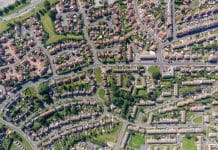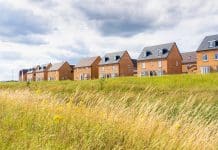The Quality Review Panel will test the fundamental design principles of planning proposals, playing a major role in the council’s commitment to exemplary, high-quality developments
Comprising 28 experts drawn from across the planning and design sectors, the independent Quality Review Panel will ensure design issues can be discussed at the early stages of the planning process.
Its formation fulfils a key commitment of the council’s corporate plan.
Both experts leading the panel are local residents in Barnet
Russell Curtis is a well-known local architect and founding director of London-based firm RCKa, which specialises in innovative residential, community and commercial projects.
Vice-chair Selina Mason, another local resident, is director of masterplanning and strategic design at Lendlease, focusing on urban regeneration masterplans.
The chair and vice-chair will work with a team of independent experts tasked with ensuring new developments in the borough are built to high standards, with sustainable credentials.
Cllr Ross Houston, deputy Council leader and cabinet member for Homes & Regeneration, said:
“I’m delighted that Barnet’s first-ever Quality Review Panel has now been formed, fulfilling a key pledge of the council’s plan for Barnet. The team of experts will help to deliver our commitment to high-quality development that complements the existing townscapes of our borough.
“At the same time, we’re strengthening our planning policies to focus on building communities, not just homes, to ensure that developments integrate well with surrounding areas, and to align with our ambitious environmental goals.”
Barnet has reworked its planning framework to promote sustainability and community
Barnet Council aims to concentrate development in the borough’s town centres and around transport links, to consolidate growth and help build sustainable communities.
With these aims in mind, the council’s Cabinet has approved a series of changes to its Local Plan – the fundamental planning framework that shapes development in the borough.
These modifications include strengthening policies to encourage high-quality design, improve street safety and amenity, and promote active travel.
The updated policies aim to ensure that the public realm forms an integral part of the design process, and to enhance the connection between publicly accessible space and the built environment. They also encourage developers to address crime prevention and fire safety in pre-application discussions.
Revisions have been also made to environmental policies, in line with the council’s commitments on combating climate change and enhancing green and open spaces.














